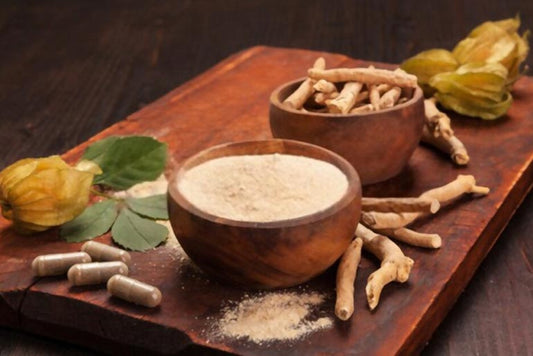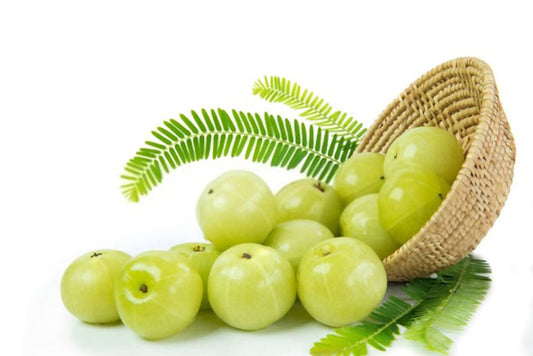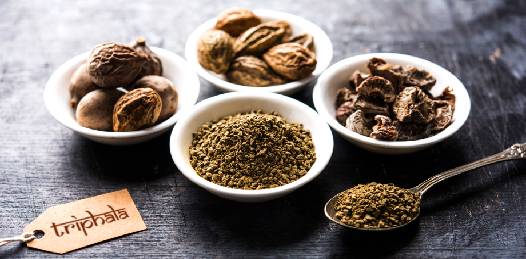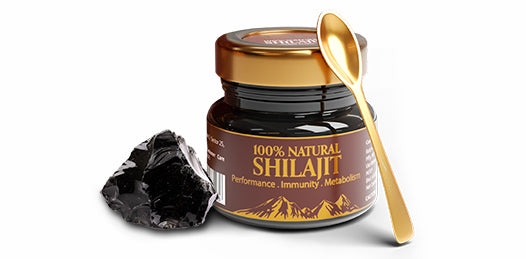Something like a "skincare routine" might sound tedious to you, but it is as simple as shaving your beard. Before shaving, you wet the hair, then foam with cream and shave it off, and at last, you apply a
moisturizer. This whole process helps to keep your skin healthy, heals any cuts and gives a pleasing look. In the same way, Cleansing, Toning and Moisturising your skin is a simple routine to start with. Before you get caught with the terms, let me tell you why a skincare routine is necessary for men.


Highlights:
- Why do men need a skincare routine?
- Factors causing skin problems
- Skin type and texture
- How to identify your skin type at home?
- 3 types of skin type according to Ayurveda
- The CTM method of skincare
- Skincare for men in field jobs
- Key benefits of using a sunscreen
- Skincare for men sitting in Air-conditioned rooms
- Skincare routine for men exposed to gadgets
- Skincare routine for men after 40
- Skin problems in adolescence
- Do you have dark lips?
- Diet practices for clear skin
- Lifestyle to follow to get bright and flawless skin
- Some simple herbs for clear skin
Why do men need a skincare routine?
The skin of men, unlike women, is a little bit hard and thick on the outside. The genetic makeup, hormones and exposure to external conditions decide the type and sensitivity of the skin.
Though women naturally tend to have attractive skin, you would have seen them picky about their choices and selective about the products. However men, just limit their skincare routine to washing their faces. Here are some reasons why men need a proper skincare routine:
A lack of a skincare routine makes your skin dull.
It might also lead to dry, chapped lips, excessively oily or dry skin.
It could also cause pigmentations, dark spots, undereye darkness and overall lacking a handsome look.
Factors causing skin problems
These could be environmental or due to using random skin products that don't suit your skin type.
Environmental factors: These include dust, pollution, exposure to UV rays, and hard water. The dust or the pollutants sediment over the skin, blocking the pores that don't allow your skin to breathe.
Further, it also prevents the sebaceous glands[1] oil secretions from coming out of the skin, leading to acne, clogged pores, and even infections.
Personal habits: These include smoking, drinking or any other habits that might have a toxic effect on your body. Even taking a lot of caffeine is a habit that hurts your skin.
Tobacco, alcohol and caffeine are all substances that increase the oxidative stress in your body. They reduce blood flow to all body parts, including your skin, leading to dull skin that can age quickly.
The loose skin under the eyes is typical for smokers. And so is the presence of lines on the forehead. Your skin loses collagen and elastin, giving you a more aged look.
Lifestyle factors: These include your meal timings, sleep routine and how well you manage stress.
Not following proper meal times and consumption of junk also harms your skin. It affects the body's biological clock reducing the effectiveness of enzymes that reduce UV damage.
Irregular sleep can raise your cortisol levels that increase cortisol levels that trigger inflammation in the skin. Sleep deprivation can also make your skin more prone to acne and allergies.
Lifestyle factors also include some simple things like not washing your face regularly, using harsh chemicals products, not following a skincare routine, or treating your dandruff problem.
Skin type and texture
Identifying your skin type is the most critical step to define a skincare routine and choose suitable products.
An easy method to identify your skin type is using tissue paper. This is effective when you do it in the morning as soon as you wake up.
How to identify your skin type at home?
Take a fresh tissue, open it and place it over your face. Gently press the tissue against your skin.
You have oily skin if you find an oily stain over the tissue from your cheeks, nose, forehead, and skin. You might find your skin becoming oily despite cleansing it regularly. You may be prone to acne, clogged pores, blackheads and cystic acne.
If you find the tissue dry without any stain, then it means that you have dry skin. You might often face problems like dry and withered skin, chapped lips. The dryness might lead to cracking and bleeding of skin and lips.
If you find otherwise dry tissue with an oily T zone representing the nose and forehead, then it means you have a combination of skin. This could be a bit confusing skin type, sometimes causing excessive oiliness and dryness.
You may self assess your sensitive skin. You have sensitive skin if your skin turns red on exposure to heat or sunlight.
Prone to rashes, allergy, itching or irritation.
Your skin might react to certain fragrant products.
Now, you know that there are four different skin types which is oily skin, dry skin, combination skin and sensitive skin.
3 types of skin type according to Ayurveda
Ayurvedic body typing is done based on the three bio-energies, namely vata, pitta and Kapha, which reflects on one's physical body, mental capabilities and emotional expressions.
Vata is a combination of Vayu(air) and Akash(space). It possesses qualities like lightness, roughness, coldness, movement and penetrative abilities.
Pitta is a combination of Agni(fire)and Jal(water). Pitta is hot, penetrating, fluid, moist, oily, light, smelling, and flowing.
Kapha combines Jal(water) and Prithvi (earth) elements, and it is cold, oily, heavy, slow, smooth, soft and offers stability.
Vata skin: Looks very thin. The blood vessels are easily visible over the skin. Prone to bleeding while shaving. Vata skin is prone to tanning with sun exposure. There might be undereye darkness due to stress or sleep deprivation.
Vata skin is also uneven toned prone to wrinkles, fine lines and signs of premature ageing. Unless taken care of, vata skin can look very dry and withered. Lips can become chapped and dry more often.
Pitta skin: Pitta skin has a medium thickness and is soft and warm. The skin is bright and glowing with fine hair. Skin conditions or allergies may flare up due to digestive problems, cosmetics use, or exposure to the sun.
Pitta may have sensitive skin prone to rashes, allergies, sunburns, dark spots and pigmentation.
Kapha skin: Kapha skin is generally very thick and is less prone to cuts during shaving. Kapha typically has thick hair follicles, an oily appearance and clogged pores. Kapha skin type is prone to acne and large pores.
The CTM method of skincare
This method applies to all kinds of skin. CTM means Cleansing, Toning and Moisturizing that is generally followed daily to keep skin healthy. It is best to follow this regimen in the night before bedtime.

Cleanser for Skin
Cleansing the skin regularly twice a day is very important to remove the dirt, debris, pollutants, and oil secretions from the skin's surface. Regular cleansing also minimizes clogged pores and acne on the skin. Use a gentle cleanser for this purpose, not to hurt the skin. Vata Skin type can use Natural Vitamin C Foaming face wash with Vitamin E and hyaluronic acid. Pitta Skin Type can use Ubtan Turmeric Foaming face wash for glowing skin and face brightening. Kapha Skin Type can use Tea tree, Neem and Basil Foaming face wash for acne spots, marks and oil reduction.
A foaming face wash is gentle on the skin and does not deprive the skin of its suppleness. Use a cotton ball to remove off the cleanser before washing with water.
Toner for skin
Toner is used after cleansing your face. Using a toner removes all dust or dirt adhered to the pores and removes any makeup or sunscreen from the skin. Toner maintains the pH of the skin. A toner is safe to use even after shaving. Vata and pitta skin types can use 2% Natural AHA BHA 1% Natural salicylic acid skin Peeling Facial toner. Kapha skin can use 10% Natural niacinamide & 1% Yashtimadhu Natural Zinc Face toner.
Moisturizing the skin
After cleansing and toning, the skin usually becomes dry. For soft and supple skin, it is best to use a moisturizer. You can use a Manjishta, Goku Kola face cream for brightening as a moisturizer during the day and Nalpamaradi curcumin face cream in the night.
Skincare for men in field jobs
If you are a person who is out in the sun for more than 3 hours a day or exposed to pollutants, then this section is for you. Prolonged exposure to UV rays can damage the skin, even leading to skin cancer. Use sunscreen with an SPF of 50. You can use Eladi, Triphala and Hemp seed Sunscreen after your CTM routine before leaving your house.
Key Benefits of using a sunscreen
- Gives skin UVA and UVB protection
- Boosts collagen production for younger-looking skin
- Protects skin against sun damage
- Replenishes skin with essential antioxidants
- Provides deep nourishment to the skin
Your skin is more prone to tanning, pigmentation and dark spots. So using a face serum having Natural Vitamin C face serum or Ubtan Turmeric face serum can help you. You have to dab the serum before bedtime for best results.
Skincare for men sitting in Air-conditioned rooms
If you spend more time being in closed Air-conditioned rooms, don't take your skin for granted. Exposure to the cold and dry environment of your cabin dries the skin too. If you don't drink enough water, then the problem only aggravates. To combat dry and cold skin, the sebaceous glands produce more oil that makes your skin look oily by evening. There could be a presence of blackheads, whiteheads, acne or clogged pores. Along with the CTM routine, using a face serum with Tea tree oil and Neem corrects oil balance and acne.
Skincare routine for men exposed to gadgets
Apart from damaging the eyes, the blue light from the gadgets and LED screens damage your skin too.
These blue lights disrupt sleep by reducing the melatonin content in the body, changing circadian rhythm. It also destroys the elastin and collagen under your skin, causing photo ageing, wrinkles and melasma. Reducing exposure to gadgets will surely help. After the CTM routine use, Vitamin C face serum with hyaluronic acid for glowing skin
Skincare routine for men after 40
Skin after 40years starts losing its elasticity. Usually, it is said that as we age, Vata dosha starts aggravating. This raised vata causes wrinkles, fine lines, crow feet and sagging of the skin. Using a face serum with Vitamin C and natural retinol for anti-ageing helps along with the CTM routine.
Skin problems in adolescence
Adolescence is synonymous with hormonal imbalance. This causes excessively oily skin, clogged pores, cystic acne and pigmentation. Washing the skin with Tea tree foaming face wash and then using a face serum with Tea tree Neem face serum for spot correction, acne & oil balance helps.
Do you have dark lips?
There is a natural variation in the shade of lip colour.
A dark lip is also a type of pigmentation of the skin. Several factors are causing dark lips.
One among them is smoking. Nicotine and benzpyrene in tobacco leave a black tinge not only on your lips but also on teeth, nails and fingers.
Excessive sun exposure can also cause dark lips.

DIY for dark lips
- Rub some coconut oil or cow's butter with sugar crystals over the lips to remove the chapped skin. A
- Applying lemon juice and honey over the lips also lightens the dark lips.
- Using turmeric mixed with cream of milk also exfoliates dry skin and lightens the lip colour.
Lip scrubs with sugar, shea butter and natural oils help in exfoliation and lightening the lips. A lip balm can be used to constantly moisturize and restore the natural colour of the lips.
Diet practices for clear skin
As you know, the skin is the widespread and largest organ in the body. A bright glowing skin is a result of a healthy gut and good blood circulation. A diet rich in all micro and macronutrients is essential for bright, clear and healthy skin.
- Include at least 2-3 vegetables in your daily diet. Veggies rich in Vitamin B, C, and E give you fabulous looking skin. Take carrots, beetroot, cucumber, green leafy vegetables, yellow, red and green bell peppers, avocado, tomatoes and lemon.
- Include 1 or 2 fruits daily. Fruits like papaya, pineapple, pomegranates, grapes, apples are suitable for the skin.
- Hydrate yourself with six to eight glasses of water during the day.
- Increase your zinc and selenium intake by including nuts and seeds in your diet. A trail mix of almonds, flax seeds, melon seeds is a great choice.
- Avoid deep-fried food. The excess oil that you consume can lower your metabolism and reflect on your skin.
Lifestyle to follow to get bright and flawless skin
- Exercising regularly flushes out toxins in the form of sweat and cleanses your skin. Remember to shower after exercising.
- Seven to eight hours of sleep is much needed for young and vibrant skin.
- Use sunscreen when you go in the sun or before swimming.
- Follow the CTM routine daily. Cleansing, Toning and Moisturising relatively reduce signs of ageing.
- Beat your stress. Meditate, relax and find other ways of staying positive. A happy mind gives healthy skin.
- Don't pick on your skin. Avoid touching the acne or rashes.
- Quit smoking
- Reduce exposure to gadgets as much as possible.
- Remove sunscreen before going to sleep.
- Avoid changing skincare products often.
- Start using SLS and paraben-free products.
Some simple herbs for clear skin
- Triphala - Triphala is a combination of Amla, Hared and Baheda fruits. Rich in Vitamin C and antioxidants, Triphala is known to cleanse your gut. Known as the mother of all herbs, taking Triphala gives you healthy glowing skin.
- Manjishta - Rubia cordifolia is a herb that imparts colour to the skin. Manjishta is a blood purifier that removes toxins from the blood. Manjishta cures acne, pigmentations and burning sensation in the skin.
- Neem - All parts of the neem tree is a powerful detoxifier for blood and skin. Neem has anti-bacterial, antifungal and antiviral properties that cure any type of skin infection.
- Aloe vera helps to improve collagen in the skin and acts as a natural sunscreen. Aloe vera hydrates, nourish and moisturizes the skin. It protects the skin from the damaging effects of radiation therapy.
- Ashwagandha - Withania somnifera is a Rasayana that boosts collagen. Ashwagandha nourishes the skin cells, cures acne and improves skin colour and skin tone.
Now that you know a skincare routine that best suits your skin, what are you waiting for?











